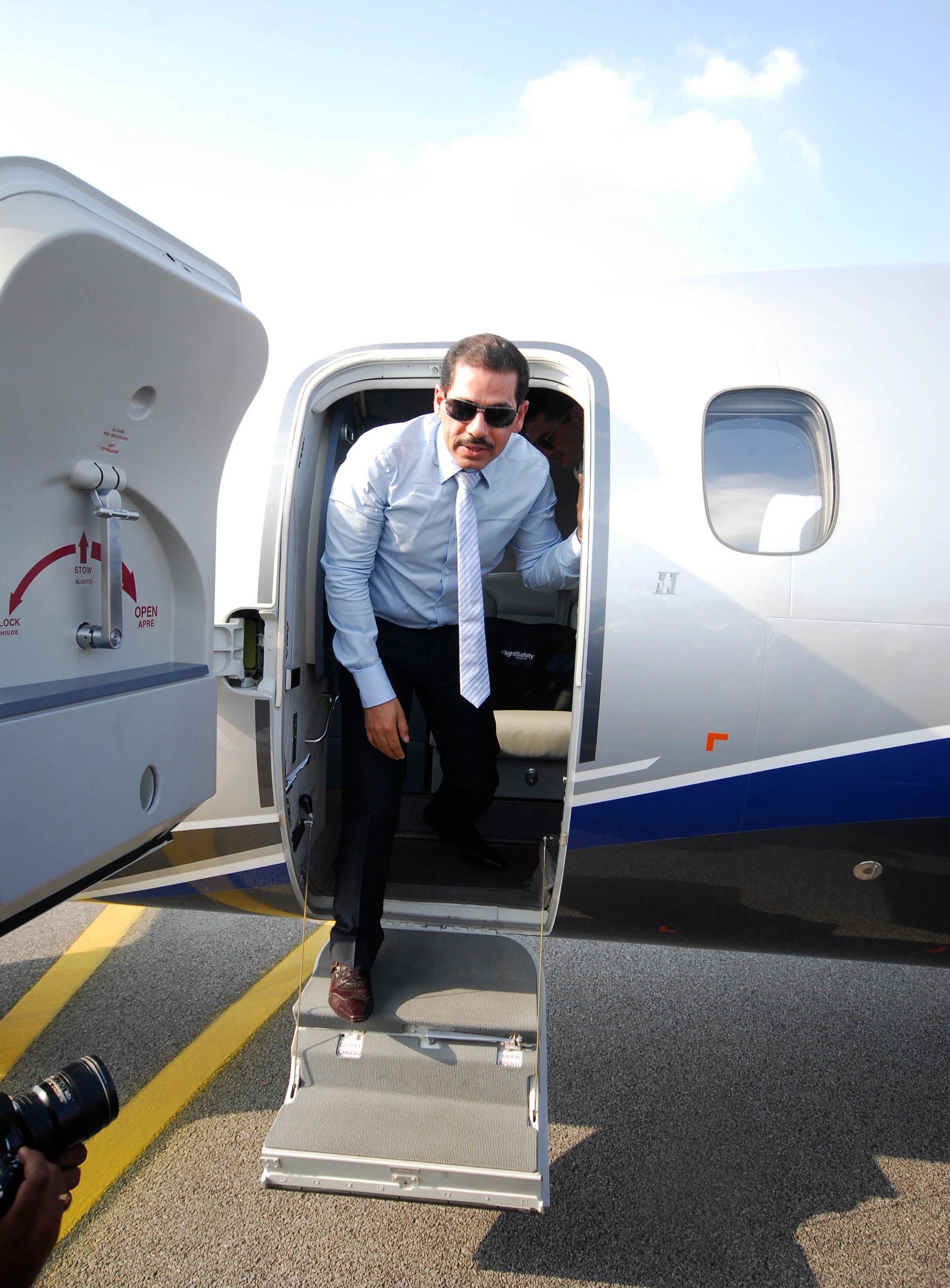Will graft allegations in India help the country shed its corruption problem?
There’s return on investment, and then there’s Robert Vadra, an Indian businessman. Vadra’s company has increased in value nearly 600-fold in the last five years, from about $100,000 to $57 million.

There’s return on investment, and then there’s Robert Vadra, an Indian businessman. Vadra’s company has increased in value nearly 600-fold in the last five years, from about $100,000 to $57 million.
But Vadra isn’t just any industrial titan. He’s the son-in-law of India’s most powerful politician, Sonia Gandhi, the president of the ruling Congress party; his wife, Priyanka Gandhi, is the daughter and granddaughter of prime ministers. Critics say those relationships are the source of Vadra’s wealth, at the expense of the Indian public.
In October, anti-corruption activists alleged that some of Vadra’s recent real estate deals weren’t on the up and up: The properties were bought from India’s largest development company, DLF, with interest free-loans from that same company. Why would a company give someone money to buy its own land? DLF has been awarded development contracts for public land, and the activists, led by Arvind Kejriwal, allege (pdf) that the sweet-heart deals have something fishy about them.
DLF has denied any impropriety, saying it had business dealings with Vadra “in his capacity as an individual entrepreneur, on a completely transparent and at an arm’s length basis.” Vadra has called the allegations “utterly false, entirely baseless and defamatory.”
When these allegations were first reported in March 2011, they were largely ignored. But Kejriwal’s prominent presentation—along with a slate of other corruption accusations against members of the Congress party and the country’s main opposition, the Bharatiya Janata Party—has helped attract attention to India Against Corruption. Kejriwal hopes the group can become a fully-fledged political party, helping to break through the two major parties’ tacit willingness to look the other way when it comes to graft. One bureaucrat who sought to investigate the charges was abruptly reassigned. He wasn’t surprised: It was the 43rd time he had been transferred after attempting to enforce the law against India’s elites.
The spate of scandals doesn’t help India’s image in the eyes of foreign investors, especially at a time when direct investment in India is receding and the government has launched an ambitious campaign of structural reform that opens the door for more multinational companies to invest in India. The country ranks 95 out of 183 in Transparency International’s corruption perceptions index, and bribery remains a cost of doing business, which has affected investors’ willingness to send capital to the world’s largest democracy.
Indians have tried to push back against corruption before; notably, Anna Hazare, the 76-year-old social activist who helped found India Against Corruption and mentored Kejriwal, has spent the last two years campaigning for the creation of an anti-corruption law. Despite hunger strikes and demonstrations, it’s still in limbo. Kejiriwal and Hazare are parting ways as the younger activist seeks to make the anti-graft movement more explicitly political; Hazare intends to continue his own brand of outside advocacy. The split may be telling of a new generation of Indian activists who want to reform their government from within.
All emerging economies deal with corruption issues at some point in their evolution, and it’s not easy without broad public support to bypass entrenched interests. In India, analysts estimate that several dozen families control most of the country’s economic opportunities. This has facilitated fast growth in key sectors, but now a more open economy would suit India’s efforts to bring increased prosperity to its citizens, both through internal competition (marriage shouldn’t be the key skill of real estate developers) and through increased foreign investment.
So even if today’s scandal is causing heartburn for Indian politicos and international investors alike, it could create the conditions for the reforms needed to be prevent the next program of illicit deals.